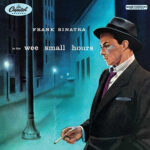Ray Charles was more than just a musician; he was a force of nature. Born into poverty in the segregated South and facing blindness at a young age, his life story is a testament to resilience and the transformative power of music. His journey from hardship to becoming a celebrated icon is punctuated by a remarkable catalog of Ray Charles Songs that redefined genres and touched millions. This exploration delves into the extraordinary career of Ray Charles, highlighting the songs that cemented his legacy as a true genius of soul music.
From Humble Beginnings to Musical Breakthroughs
Ray Charles’ early life was marked by adversity. Orphaned at 15 and blind since the age of seven, he could have easily been defined by his challenges. Instead, he chose music as his path. Learning Braille music notation and mastering multiple instruments, Charles honed his skills playing across the Florida Chitlin’ Circuit. His relocation to Seattle’s vibrant Red Light District proved pivotal, leading to a lifelong friendship with Quincy Jones. Forming the McSon Trio, he tasted regional success with “Confession Blues,” which caught the attention of Swing Time Records. In 1952, Atlantic Records recognized his burgeoning talent and bought out his contract, setting the stage for his groundbreaking work.
The year 1954 marked a turning point in music history and for ray charles songs specifically. He released “I Got a Woman,” a revolutionary track that fused gospel fervor with bluesy grit. This innovative blend wasn’t just a hit; it was a cultural moment. “I Got a Woman” soared to the top of the R&B charts and, more importantly, was christened as the first-ever “soul” song. This pivotal moment earned Ray Charles the well-deserved title of “genius,” signaling the arrival of a unique and powerful voice in music.
Chart-Topping Hits and Unforgettable Performances
The mid to late 1950s saw Ray Charles’ star rise meteorically. He became a sought-after touring act, captivating audiences at prestigious venues like Carnegie Hall and the Newport Jazz Festival. His improvisational genius was famously on display one night in 1959 when, running short on material, he spontaneously created a call-and-response with his band. The audience’s electrifying reaction convinced him he had something special. This improvisation became “What’d I Say,” his first top 10 hit. Despite suggestive moans from the Raelettes backing vocalists causing some radio stations to hesitate, the song’s raw energy was undeniable. The following year, 1960, brought even greater heights with “Georgia on My Mind,” his first number-one smash hit, a song that remains one of the most beloved ray charles songs to this day.
Ray Charles graced The Ed Sullivan Show stage not once, but twice, further solidifying his mainstream appeal. His first appearance on December 3rd, 1967, was an explosive start to the episode. He and Billy Preston ignited the stage with “Double Oh Soul,” showcasing Charles’ dynamic stage presence. He followed this with a soulful rendition of The Beatles’ “Yesterday” and a high-energy performance of his hit “What’d I Say,” complete with the Raelettes’ captivating backing vocals.
His second Ed Sullivan Show appearance on December 8th, 1968, was equally memorable. Opening with “Marie” alongside the Ray Charles Orchestra, he demonstrated his versatility. He then delivered a deeply soulful cover of The Beatles’ “Eleanor Rigby,” again featuring the Raelettes, and concluded with a bluesy solo performance of Little Milton’s “If It Weren’t For Bad Luck.” These performances showcased the breadth of ray charles songs and his ability to masterfully interpret diverse musical styles.
A Lasting Legacy of Soul and Genius
Ray Charles’ musical journey was characterized by his fearless exploration of gospel, R&B, soul, and country music. Accumulating an impressive thirty-three Top 40 hits throughout his career, his contributions to music were undeniable. He was rightfully inducted into the Rock and Roll Hall of Fame in 1986 and honored with a Grammy Lifetime Achievement Award in 1987. Even after his passing in 2004, his musical legacy continued to resonate. Posthumous albums, including “Genius Loves Company,” garnered further accolades, with the latter winning 8 Grammy Awards.
Ray Charles epitomized soul music, a genre he helped define. As he eloquently stated to Time magazine in 1968, “It’s a force that can light a room. The force radiates from a sense of selfhood, a sense of knowing where you’ve been and what it means. Soul is a way of life—but it’s always the hard way.” Ray Charles was already a legend when he graced the Sullivan stage, and his unforgettable performances remain a cherished part of the show’s history, witnessed by millions. To truly appreciate his genius, exploring the extensive catalog of ray charles songs is essential, offering a deep dive into the heart and soul of American music.


